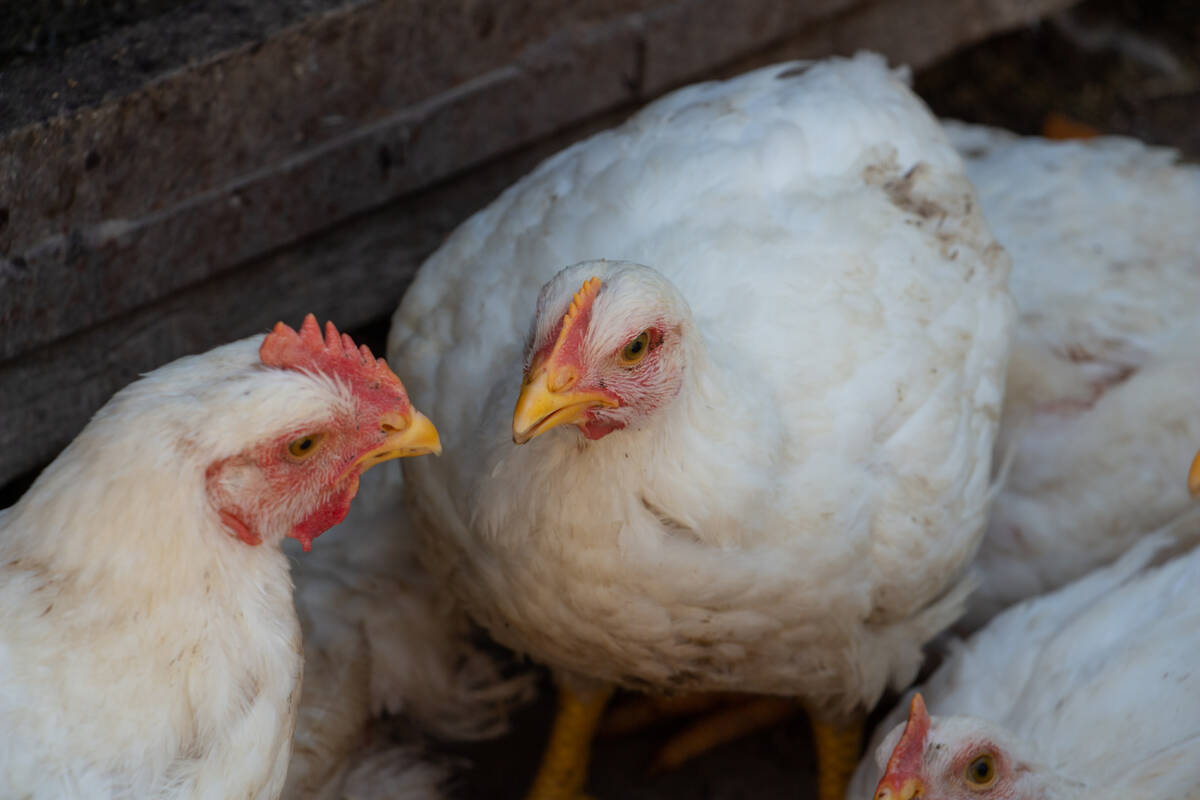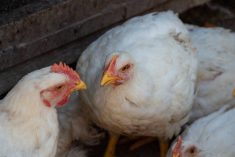Unexpectedly high overwintering losses in Ontario’s honeybee colonies over the past three years can be blamed largely on varroa mites, according to a new University of Guelph study.
The study, spearheaded by environmental sciences professor Ernesto Guzman, notes about a third of Ontario’s colonies died off in the winter of 2006-07, followed by another third in 2007-08.
Some beekeepers in parts of Ontario lost all their hives in overall winter losses about three times those seen in average years, the study said.
Guzman, in a university release last week, described varroa mite as “the main culprit in (honeybee) colony mortality in Ontario,” responsible in about 85 per cent of bee mortality cases.
Read Also

Chicken, eggs benefit from demand for economical protein
Strong demand for protein and status as an economical alternative to beef bodes well for chicken and egg demand in 2026 according to recent analysis from Farm Credit Canada.
The next biggest causes, he said, were too-sparse beehive populations in the fall and food reserves that weren’t sufficient to last the winter.
“We’re pretty sure we’ve solved a great deal of the mystery,” he said of the study, the results of which were recently published in Apidologie, a bee science journal based in France.
In fall 2007 and in the spring and early summer of 2008, Guzman counted bees in colonies, weighed colonies to gauge food reserves and tested bees for varroa mites, tracheal mites and the nosema fungus, all known to cause infections.
The study group included 408 commercial colonies in six southern Ontario counties, among them Wellington, Middlesex and Norfolk.
To counteract these problems, Guzman recommended that beekeepers “strictly” follow a mite treatment regimen, feed their bees enough sugar syrup and avoid splitting colonies too late in a season.
Tim Greer, president of the Ontario Beekeepers’ Association, said in the university’s release that the study will help the province’s 2,200-odd beekeepers improve management practices.
Furthermore, he said, he industry still needs reliable treatments for varroa mites.
Experts are also concerned about effects of systemic pesticides on bees in other parts of the world, said Greer, who operates out of St. Catharines. However, he said, those products appear not to be a “major problem” in Ontario.
For his part, the university said, Guzman is currently studying genetic techniques to learn more about honeybee infections and help breeders develop better bees.















